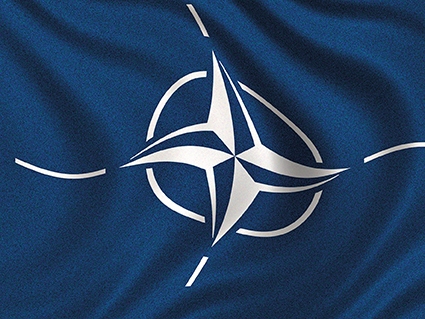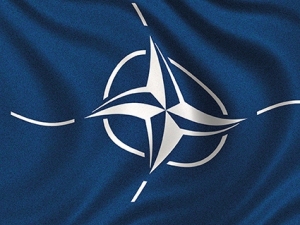Georgia as "the Israel of the Caucasus"- a Concept Worth Considering?
Analysis
The recent NATO Summit in Brussels presented the free world with a new and incomprehensible quagmire when it comes to the viability and sustainability of its security. This development is even more alarming when one considers that the simmering disarray within NATO’s architecture has reached boiling point, with its members visibly divided over a wide range of issues—from defense spending to naming priorities for a mode of reorganization capable of shielding liberal regimes, from current dangers to tomorrow's treacherous risks. This NATO “crisis” (to call it that) is not necessarily insurmountable, but it nevertheless raises the prospect of a variety of dire scenarios. These relate to the breaking down of NATO’s collective system into a series of "geographic cells" of varying degrees of intensity (e.g. "old" Western European members vs. “new” Eastern European ones, core European states vs. a Balkan "underbelly," practically reneging on the equal and unbiased application of Article 5, etc.) and egregious questions such as former Swedish foreign minister Carl Bildt’s “What is left of NATO and the transatlantic order?” All in all, and regardless of the multiplicity of entanglements, there is no doubt that the most famous system for collective defense since World War II is facing historically high levels of uncertainty, and the precariousness of the current international situation is causing even greater anxiety for Georgia, which has anchored its present and future wellbeing upon the health of the free world and its capacity to cope with internal and external shocks.
Equally, the "caveat" view is that Georgia obtained no more than it was supposed to and no less than it deserved during the Brussels summit in July. Although we have been advocating for NATO to promote the Georgian cause more decisively and vigorously (see, for example, “Georgia's NATO Membership: A Definitive Decision Has (Yet) to Come,” GEORGIA TODAY, 20 July 2017; “We Need A Marshall Plan: We All Really Need One”, GT, 19 June 2017), if we submit the question to at least a modicum of sound analysis, it is crystal clear that given the frictions within NATO and the volatility of US policies (both before and after the summit), our expectations need to be modest. In addition to the hand-wringing among its more conservative (not to say lax) members on the Western flank and the somewhat flamboyant stance of its members on its Eastern one, NATO has been in dire need to reconcile its polyphonic positions (at least temporarily) with Russia's ever-increasing penchant for revisionism, and therefore maintain a (formal) unity among its rank-and-file. With that in mind, we appeal to the most ardent critics of Georgia's "failure" at the summit to diligently and carefully read every line of the NATO-Georgia Commission Declaration before wasting more energy on their passionate expressions of opprobrium. The Declaration does repeat certain elements of the past, of course, such as appreciating Georgia's "significant contribution to the Resolute Support Mission" (RSM), welcoming expanding co-operation "in particular under the umbrella of the Substantial NATO-Georgia Package" (SNGP) and progressing with "the NATO-Georgia Joint Training and Evaluation Center" (JTEC), etc. Yet whilst reiterating that "Georgia will become a member of the Alliance" (a famous Bucharest dictum subsequently reaffirmed at the summits in Strasbourg, Lisbon, Chicago, Newport, Warsaw) and recognizing a future MAP "as an integral part of the process," the Declaration also focuses on the very meaning of security for the Black Sea basin, engaging with both the western and eastern shores of the wider Black Sea region on an equal footing. This is very hard indeed to overlook, but the feeling nonetheless lingers that Georgia is still not where it has long been destined to be—not only through its annual national program or various other elements of co-operation with NATO, but most importantly through its own "blood, toil, tears and sweat," to quote Churchill.
Regardless of whether the 2018 NATO Summit in Brussels was a success or a failure, the vulnerable posture of collective security systems these days, combined with a growing transactionality in world affairs and the frivolity of Russian policies in its neighborhood, demands that we spare no effort in searching for alternatives (see “Georgia's Foreign-Policy "Great Game": a Multifaceted Coin”, GT, 11 May 2017; “Buckle Up: "New Normals " Are Coming”, GT, 8 March 2018), that we boost our still-fragile national security and that we achieve a relative respite, domestically speaking, until the conflicts around us are settled and a new world order is finally "buckled up".
The story is once again one of a quest for a Georgian-driven defensive pivot, for a regional "center of gravity" heavily backed by a bilateral, specifically designed treaty, through which Georgia may avoid many problems and, within NATO in particular, give the country a much-needed foundation for long-lasting peace, security and development. The current torments of the emerging “World Order 2.0” clearly entail a shift towards formulating and following more idiosyncratic paths: it has become fanciful to speak of the liberal values and multilateralism shared by modern democracies. In the present era of existential threats, which may well increase tomorrow, the choice had better be plain and realistic instead of complex and unachievable. Perhaps an apposite parallel: Israeli Prime Minister Golda Meir once noted that "If we have to [choose] between being dead and pitied, and being alive with a bad image, we would rather be alive and have the bad image."
Bilateralism rules?
Is the world heading towards bilateral defense arrangements? Perhaps not irrevocably, of course, but recent trends for more bilateralism are indisputable. We have briefly discussed the phenomenon of bilateral setups (“Bilateral Arrangements: A Transitional Stage to Heighten Georgia's Security?”, GT, 23 November 2017), but scholars and policy-makers should expand these discussions for a wider audience and thus permit them to make a more informed decision when and if a U-turn occurs. There are plenty of relevant examples, but few of them are perhaps more apposite to our present discussion than the trajectory which runs from the notorious US-Israel relationship to Poland’s recent initiative of an "Israel on the Vistula".
The United States has always defined Israel’s survival and security as important to US national interests, and by the terms of their strategic partnership has been providing Israel (the only democracy in the Middle East) with important security assistance for decades. An illustration of the truly remarkable extent of their co-operation is that on 14 September 2016, the two signed a new package whereby the US will provide Israel with $38 billion in security assistance- $5 billion of which to be spent on missile defense. (For the sake of completeness, however, it should be mentioned that Israel is required to spend nearly 75% of this assistance on US-made equipment, thereby creating American jobs.) This latest package supersedes the one which was signed in 1998 worth $21.3 billion. On top of this, the US relies on Israeli assistance when it comes to dealing with regional instability, and regularly cooperates on intelligence, national security and counterterrorism. The IDF and the US military also benefit from the sharing of technologies and tactics. All in all, the US-Israeli example is unique when compared to other partnerships around the world.
The next case we will briefly touch upon is that of the US and Poland, a relationship which is remarkable in a few important aspects and can be quite instructive to Georgia, since Poland, a NATO member on the eastern flank, borders upon a revisionist Russia and is regarded by various pundits as the future economic powerhouse of Europe and the undeniable leader of the "buffer" of countries which stretches from the Baltic to the Black Seas (the so-called “intermarium”). The Poles have long craved to enhance their air and missile defense systems, as the one they inherited from the Warsaw Pact is obsolete and cannot serve as an effective shield (except perhaps at medium ranges). This situation, however, has changed dramatically thanks to the "Israel on the Vistula" strategy and the introduction of US Patriot missiles within Polish air defense. Besides increasing the interoperability of Polish armed forces with those of NATO, and strengthening the block to the east, by creating a "system of systems" it also adds the capability of intercepting medium and intermediate range missiles from the Middle East. A last point to mention regarding the case of Poland is that the country acts as a fully-fledged member of the largest military alliance in the world but continues to develop a defensive strategy on a somewhat "isolated" basis within NATO.
Is it all about "Boots on the Ground"?
Defense components are certainly the backbone of any alliance which Georgia may possibly enter into. Various NATO embedded programs (e.g. RSM, SNGP, JTEC, GDPR) significantly improved the Georgian army’s interoperability with its Alliance counterparts, and particularly with the US armed forces. Georgia is also working with NATO partners to seek to address regional security challenges, while missions to Iraq and Afghanistan have primarily contributed to US-led operations there. This military story continues to reach new heights, with Georgia’s acquisition of US anti-tank missiles and the holding of joint military drills (e.g. Noble Partner, Agile Spirit). This is of course just a short “recap” of the defense-driven actions which lay down sound foundations in keeping with the country’s two-speed approach, which aims to hold the course of its Euro-Atlantic integration (a course that was recently entrenched in the constitution) whilst keeping a sharp look out for potential bilateral security and defense treaties (most logically with the US) should such opportunities arise. Prospects, and possibly venues, for further developing the Georgia-US bilateral relationships are ample considering the need to contribute to regional stability (including through a US forward presence), to keep an eye on the Iranian conundrum, intelligence-sharing and developing Georgia as a regional infrastructure hub. The practicality of Georgia realizing all this, which is not a radical departure from what has already been tested in different parts of the globe, mainly rests upon the political will to make decisions, but like any other sound alliance in the world, the one under discussion goes far beyond simple military hardware and people in uniforms.
Georgia’s chances of becoming a member of multilateral or bilateral security systems in the democratic world are strongly related to the viability of its own democracy, to the extent that its economy is truly open, to its human rights record and to its devotion to the rule of law. No air defense system can be a substitute for the tangibility and operability of these values. And this is really good, as it leaves no room for secretive governance, fake institutional independence and shady economic systems. All things considered, any security system for Georgia would only be viable if it is underpinned by liberal democracy and unrestricted civil rights: these are what Georgia should stand for as the country dear to all those who call it home.
By Victor Kipiani












